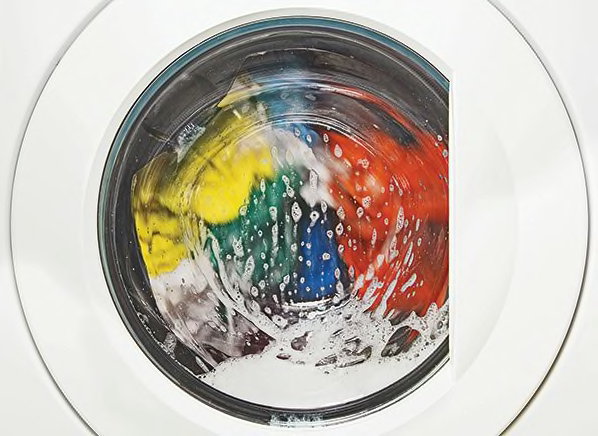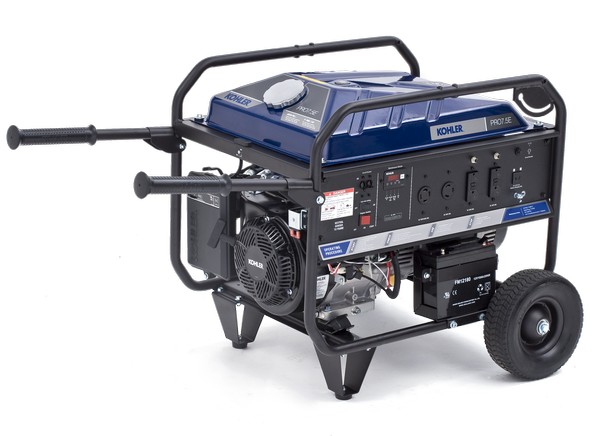Sign In

In the late 1950s, Mao Zedong sought to make China an industrial power by encouraging peasants to ignore their farms and build backyard iron smelters. The nationwide project was an abject failure, and a cause of a major famine. Nearly fifty years later, China has become an industrial powerhouse beyond Mao's wildest dreams. But that success is now threatened by an ever-growing list of safety problems with Chinese-made products. First it was pet food contaminated with melamine. Then toothpaste containing diethylene glycol. Two weeks ago: a huge recall on Thomas & Friends toys coated with lead paint. Earlier this week, we learned about unsafe tires that need to be recalled. Can we no longer trust products made in China?
Here are some startling statistics: The number of Chinese-made products that are being recalled in the U.S. has doubled in the last five years, helping to drive the total number of recalls in this country to an annual record of 467 last year. Chinese-made products account for 60 percent of all consumer-product recalls, and 100 percent of all 24 kinds of toys recalled so far this year. Even China's own government auditing agency found that 20 percent of the toys made and sold in China had safety hazards.
As consumer products companies continue to move their manufacturing from the U.S. to contract factories overseas, we shouldn't be surprised by an increase in recalls of foreign-made goods; in some ways, it's simply a reflection of the growth of such products in the overall market. And we've Rated many products made in China and other developing countries as highly as those produced domestically. Still, we need to keep unsafe goods from crossing our borders and hold manufacturers more accountable for producing unsafe goods in the first place.
Our government safety agencies, including the Consumer Product Safety Commission and Food and Drug Administration, are woefully underfunded and understaffed to stop substandard goods from entering our country. Consumers Union has been advocating for beefing up the resources for these agencies so that they can be more effective in protecting consumer safety. However, even if that happens, we need to place more responsibility for product safety on those U.S.-based companies that import, distribute, and sell products.
If laws would allow government watchdog agencies to levy large civil penalties against all parties in the supply chain, it would change the way businesses operate. To protect themselves, importers would require thorough testing of the products they source and insist on independent safety certifications. They would also develop quality assurance programs that would ensure that products are produced according to good manufacturing practices and meet quality and safety standards. Quality assurance would need to become an on-going practice with pre-shipment testing and inspections conducted regularly by independent laboratories.
The quality assurance process for foreign-sourced goods can be a very effective tool for protecting importers — and consumers. I've personally witnessed the success of this process in Chinese factories that were producing products for one of this country's largest retailers. Any product with a critical defect — lead paint, faulty wiring, etc. — would result in a rejected shipment. You can bet that manufacturer was careful about testing its products before they were ever loaded onto a container-ship.
But the retailer's mantra of speed-to-market leaves precious little time for the testing and inspection processes once products are manufactured. Testing and inspection companies are often rushed to get their job done and comprehensive testing may not be practical. Large retailers also squeeze manufacturers to cut pricing, pushing them to cut corners. The power and efficiency of major retailers often has unintended consequences, jeopardizing consumer safety. Increasing their responsibility and accountability will force them to take a more proactive approach to product safety. (Consumers, long accustomed to paying ever-lower prices for almost all goods, may also need to acknowledge that there are some things — like safer products — worth paying a little more for.)
As an added deterrent to bringing unsafe products to the market, the principals of companies who knowingly import, distribute or sell unsafe products, should be subject to criminal penalties. Last year, I testified to the Senate Judiciary Committee on this issue.
The Chinese government also needs to play a role, particularly in reforming corrupt practices that often lead to inspectors and other officials turning a blind eye to infractions and irregularities (though we're not sure China's recent decision to execute the former head of the country's equivalent to the FDA for taking bribes is quite the direction we would take). However, our focus needs to remain on changes we can make by working with U.S. regulators and the domestic manufacturers, importers and retailers responsible for bringing Chinese-made products into this country.
This issue is coming under closer scrutiny by some policymakers and the media. Hopefully, this will bring about change. In the meantime, you can keep on top of product recalls and sign up for recall notices and safety alerts at www.recalls.gov. And should you find an unsafe product, you can help protect other consumers by reporting it to the appropriate government agency as well as to us.
— Don Mays
 WASHING MACHINE REVIEWS
WASHING MACHINE REVIEWS GENERATOR REVIEWS
GENERATOR REVIEWS
 Build & Buy Car Buying Service
Build & Buy Car Buying Service
Save thousands off MSRP with upfront dealer pricing information and a transparent car buying experience.
 Get Ratings on the go and compare
Get Ratings on the go and compare
while you shop